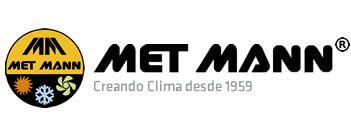In this article we will explain how to improve air quality in the food industry, which systems help to maintain optimal hygiene and safety conditions that are now more necessary than ever.
Air purification in the food industry
Food production facilities sometimes require complex production mechanisms, manipulation by operators and other processes that require very meticulous hygienic and disinfection conditions.
In this context, controlling the air quality in the production areas, especially in relation to the temperature and humidity of the environment, is an essential requirement. A high degree of humidity could cause condensation on the surfaces and promote the appearance of mold, deterioration in the facilities and machinery, as well as the proliferation of contaminating bacteria.
All these factors must be managed through the indoor air quality of the facilities that remains stable in all sectors (storage, packaging …) to preserve the safety and quality of the products.
This is achieved through an air filtering process that requires a prior analysis of the existing ventilation systems and the possible dangers they harbor. Once the technical study of the contamination risks has been carried out, the potential risk zones of each production area have to be established as well as defining the necessary purity in each environment.
Air filters to improve air quality in food industries
When deciding on an air filtering system to improve air quality in the food industry, it is necessary to take into account that they must be installed in such a way that the air conditioning and ventilation systems are kept free of suspended pollutants and kept in intact hygiene conditions at all times.
It is convenient to take into account the filters necessary to keep the air purity intact, differentiating between dust, aerosols or gaseous components for which it will be necessary to use gas phase filters. In the event that the dust concentration is high, dust extraction systems with washable filters will be used for technical and economic reasons.
Furthermore, to guarantee air quality it is recommended to always use filters of the highest purity, such as EPA, HEPA and ULPA approved according to official certifications: ISO 29463, DIN EN 779 (for coarse particles G3 and G4) and DIN EN 1822 ( for fine particles from M5 to F9).
How to improve air quality in the food industry
At this point, it is convenient to review what factors need to be controlled when optimizing air quality in the food industry.
Circulate the air
Proper air circulation can eliminate most of the air quality problems in an industry. In the power supply context, HVLS industrial fans are often used to move large amounts of air at low speed and optimize the energy consumed.
This type of ceiling fans provide a continuous air flow, which together with HVAC systems (acronym in English that correspond to heating, ventilation and air conditioning) are constituted as fundamental tools to regulate factors such as the temperature and humidity of the rooms. facilities eliminating toxic substances in suspension and avoiding the accumulation of dust.
Manage humidity and condensation.
As we have already mentioned previously, humidity is that great enemy to beat in the food industries. The continuous washing processes as well as the presence of products that can incorporate a higher degree of humidity into the environment make controlling this factor not an easy task.
On the other hand, condensation can lead to safety problems, causing slips and accidents among operators by accumulating on the ground or between two environments with controlled temperatures but different from each other.
To solve this question, HVLS industrial fans are once again the solution. Its large dimensions allow a greater amount of air to circulate in the work environment, which improves the evaporation of possible dew points, thus contributing to improve air quality in food industries that suffer from this problem.
Regulate the temperature
Normally, food industries require cold environments for the manufacture of food for human consumption. These temperatures must be stable in order to preserve the quality and safety of the product.
When it comes to small rooms, maintaining stable temperature levels does not require much effort, but things change a lot when we expand the work areas (large packaging areas, large warehouses for cold products …)
These situations therefore require HVAC systems that are in charge of cooling the room that should be used with HVLS fans that allow the generation of air currents that adequately distribute the cold throughout the room, preventing the hot air from rising and the temperature from being maintained. uniform throughout the environment.
The management of air quality in industries is a key element to improve working conditions, ensuring the comfort of employees and in many sectors necessary for the proper management of production.
As we have seen throughout this article, taking care of air quality in the food industry is a necessary factor to ensure hygiene and safety conditions, avoiding unwanted contamination, accidents and preserving product quality.
If you need advice to improve the working conditions and environmental hygiene of your facilities, do not hesitate to contact our expert advisors. At Met Mann we can offer you the solutions you need to improve air quality in your company. Do not hesitate and contact us without obligation.


